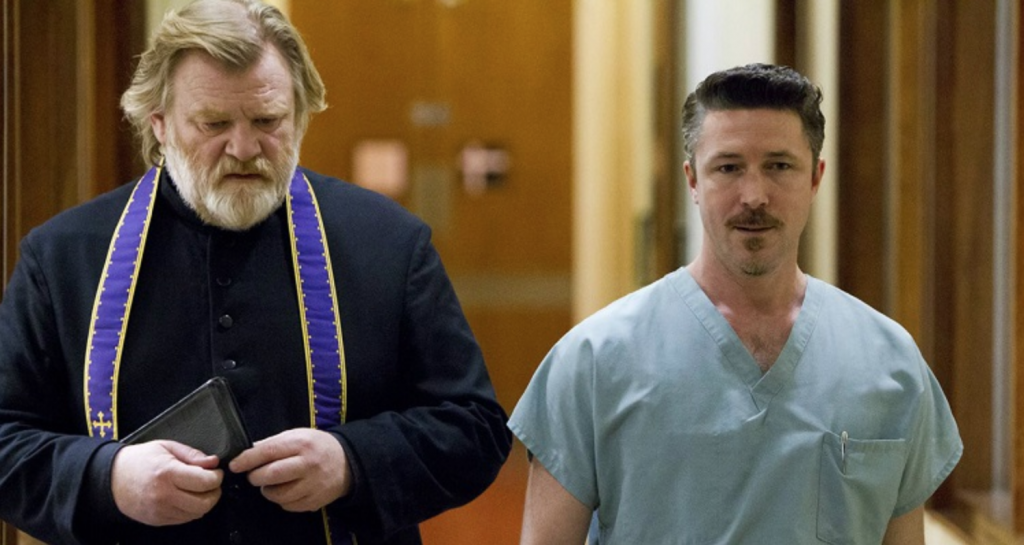The saying goes that confession is good for the soul, but if the law being voted up the flagpole in California is enacted, confession may not be so great for your constitutional rights.
We can argue about the unknowable, like the intentions of the politicians who are rushing to make mandatory destruction of the seal of the confessional the law of the Golden State, but who can say what is in anyone’s heart … and even if the intentions are good, isn’t the road to perdition paved with such building material?
Hearing the debate being bandied about by politicians who are supporting this bill makes me think that most of their theological training comes from popular culture. I willingly stipulate the treatment of one of the seven sacraments as a plot device is not the most reverential thing I can think of, but our culture is not resting on a very reverential plateau anyway.
Alfred Hitchcock used confession to great effect in his thriller “I Confess.” Probably not the first time the “device” was used to further a plot but certainly one of the best. In typical Hitchcock fashion, the star of the film, a priest who has heard a confession, finds himself the odd man out and pursued by both the “good” guys and the “bad” guys.
The priesthood and the sacrament in this film are treated with respect, which may have more to say about the 1950s, when the film was produced.
Thirty-some years later, a film called “A Prayer for the Dying” got confession all wrong. A crime is committed. A priest witnesses the crime. The perpetrator of the crime THEN goes to confession and confesses the crime, thinking he has sealed the priest’s lips closed.
Seems to me the priest cannot divulge anything he heard in the confessional, but he certainly could tell the police everything he saw outside the confessional as a witness to a crime. Despite that hole in the plot, the movie at least had a basic understanding of the sacrament.
Probably the strongest and most powerful film relating to confession is “Calvary,” starring Brendan Gleeson, portraying a priest who is told during confession that he will be murdered in a week for the crimes of other priests.
This film is hard to watch and not for children, but it is powerful on multiple levels and although rife with scandalous elements, tells a strong and strangely reverent story about a good priest. This film has plenty to say about the collateral damage caused by sexual abuse, and the Church gets a black eye here and there, but the sacrament’s inviolability is essential to story and remains intact.
How ironic that these make-believe movie scenarios are closer to the truth of the confessional than what politicians in Sacramento think confession is.
They seem to think that a person who kneels before a priest in a confessional is telling his or her sins to a man. They think pretty much along the same lines as empirical Roman bureaucrats thought when they had the truth staring them right in the eye. In other words, they are missing the point.
Movie audiences, whether the film they’re watching has the sacrament of penance in it or not, want what California politicians want … the bad guys getting what’s coming to them. They seem to think confession is some kind of unjust “get out of jail free” card.
In a way, like the cross, that’s exactly what it is. Confession is the gift of mercy and forgiveness, if in fact the penitent is truly sorry for what he or she has done. That does not mean the divine mercy we receive without earning it comes without a corresponding call for justice.
Though a priest cannot and hopefully will never disclose what he has heard in the confessional to anyone, the person doing the confessing, especially if that person is confessing a sin this proposed law is supposed to be targeting, must seek justice — justice even in the form of turning himself in to the proper authorities.
A priest cannot make that a part of the penance, as it would violate the seal of the confessional, but if a person really is truly sorry, he or she must seek that kind of justice on their own.
And whether a perpetrator who confesses a terrible sin does or does not seek justice, that is between them and God … not the state.
Robert Brennan is director of communications at The Salvation Army California South Division in Van Nuys, California.
SPECIAL OFFER! 44 issues of Angelus for just $9.95! Get the finest in Catholic journalism with first-rate analysis of the events and trends shaping the Church and the world, plus practical advice from the world’s best spiritual writers on prayer and Catholic living, along with great features about Catholic life in Los Angeles. Subscribe now!

